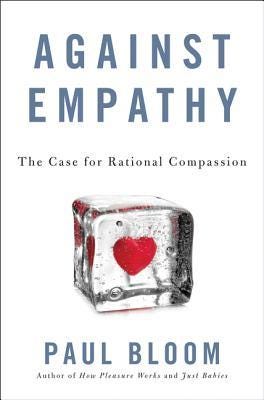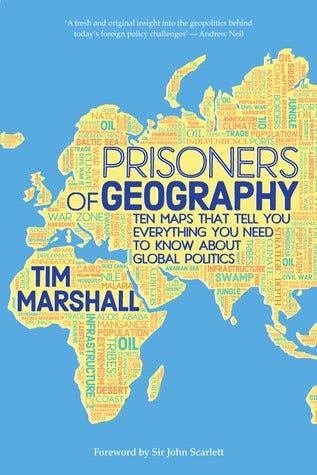
Margaret Pan On Medium
When affordable books have much more value than expensive courses
I don’t regret the time I spend in college but, in hindsight, the things I learned sitting in endless lectures and studying dozens of textbooks had little value for me after my graduation.
I quickly realized that the place to seek the knowledge I needed to progress in life and grow as a person wasn’t a classroom, but a library.
There’s a quote by Jim Rohn that goes,
“Formal education will make you a living; self-education will make you a fortune.”
I couldn’t agree more with these words. People tend to underestimate books, their power, and the knowledge they can offer you. Yet, most of the things I’ve learned worth knowing in life, I’ve learned from books.
Here are four spectacular books I can confidently say taught me much more than my expensive degree.
You Are Not So Smart by David McRaney

How smart do you think you are?
This probably doesn’t come as a big surprise, but humans aren’t the rational creatures we think we are.
Most of the time we don’t see the world as it really is. From the number of friends we have on Facebook to the smartphones we choose to purchase, we’re constantly deluding ourselves.
The culprits responsible for our errors in thinking? Cognitive biases, heuristics, and logical fallacies. Once we understand and learn to recognize them, the better and more logical our decision-making will be.
In this spectacular book, the author examines how our biases taint our perception of the world, by delving into a wide range of psychological research and breaking down 48 psychology concepts.
Why you should read this book:
What I loved about this book is that it pushes you to challenge your perception of the world and everything you thought you knew about the way your brain makes decisions.
Since it covers a wide range of concepts, most of the information in it is extremely valuable in the process of becoming more self-aware, and making more rational decisions at work, at home, in your relationships, and even in your daily interactions.
It’s also evident (and important) that the author did his research — everything he says is backed by data and studies — which gives the book credibility.
“THE MISCONCEPTION: You are a rational, logical being who sees the world as it really is. THE TRUTH: You are as deluded as the rest of us, but that’s OK, it keeps you sane.”
“You can’t rage against the machine through rebellious consumption.”
“We reach for the same brand not because we trust its quality but because we want to reassure ourselves that we made a smart choice the last time we bought it.”
― David McRaney, You Are Not So Smart
Against Empathy by Paul Bloom

It seems that nowadays people are almost obsessed with empathy. But did you know that empathy can lead to inequality and immorality?
That our ability to sense other people’s emotions and feel for them might be prejudiced and selfish?
I didn’t know that using empathy as a moral guide could be bad for me until I read this book.
The author, who’s a psychologist, argues that empathy often clouds our judgment and leads us to make unfair decisions in every area of our lives.
Backing his arguments with scientific findings, he explores empathy’s limitations and shows us a better alternative: rational compassion.
Why you should read this book:
Empathy isn’t perfect nor is the solution we need to help others.
That’s the #1 lesson the book teaches you, which, IMO, is an extremely important one, considering people’s obsession with “improving their empathy”, and “learning new empathy techniques”.
By reading the book, you’ll understand the distinctions between selective empathy and rational compassion and you’ll learn how to use the latter in order to make better decisions, and genuinely contribute to making the world a better place.
“If God exists, maybe He can simultaneously feel the pain and pleasure of every sentient being. But for us mortals, empathy really is a spotlight. It’s a spotlight that has a narrow focus, one that shines most brightly on those we love and gets dim for those who are strange or different or frightening.”
“The idea I’ll explore is that the act of feeling what you think others are feeling — whatever one chooses to call this — is different from being compassionate, from being kind, and most of all, from being good. From a moral standpoint, we’re better off without it.”
― Paul Bloom, Against Empathy: The Case for Rational Compassion
Firestarters by Raoul Davis Jr./Paul Eder/Kathy Palokoff

What is the difference between people who think about making things happen and those who actually make them happen?
That’s a question none of my college professors or dozens of textbooks could answer…but this book did.
Featuring stories about successful people from a variety of professions (CEOs, entrepreneurs, etc), each describing what helped them become achievers, it’s one of the few books that genuinely motivates you to actively pursue and realize your dreams.
Why you should read this book:
If you’re tired of reading the same boring and practically useless recommendations you see in the majority of self-help books, you’ll be surprised by the nuggets of wisdom displayed in this book.
The authors offer plenty of practical advice on how you can discover what you truly want out of life, and what steps you can take toward achieving it.
However, if we’re being honest, sometimes reading some piece of advice, no matter how useful, isn’t enough, right?
That’s why the authors have gone one step further, including self-assessment exercises, checklists, questions to spark your thinking, and other practical tools in the book — all of which will inspire and help you “ignite your own fires”.
“Introspection is a form of self-management. You reflect. You decide. You change. You allow yourself to grow.”
“People’s confidence in their abilities influences how they approach life. Their dreams are likely anchored to what they feel they can achieve.”
“If you want to make a difference, you must live like no one else and strive to achieve goals that others view as impossible to reach.”
― Raoul Davis Jr., Paul Eder, Kathy Palokoff, Firestarters
Prisoners of Geography by Tim Marshall

This is one of my all-time favorite non-fiction books and is pretty close to my degree since geopolitics was examined and analyzed in 1/3 of my courses.
None of those courses examined geopolitics in such a rich, informative, and engaging way as this book though.
Geopolitics is the study of the influence of geography on political decisions and gives you an idea about the dynamics between global economic, social, and political forces.
You might not be particularly interested in history, politics, or geography, but you need to have a basic idea of the way leaders of nations think and act, especially now you’ve seen the impact of the Russia- Ukraine war on the whole world.
The book takes you on a journey through the world by using maps, facts, and his spectacular sense of humor, explains the complex relationship between them, and showcases how geography constrains their leaders.
Why you should read this book:
You know that feeling when you watch the news but have a hard time following what’s being analyzed because you have no idea of the events’ background?
Well, it’s about time you read this book.
Even if geopolitics isn’t your thing, the book is a must if you want to be better informed about the relationships between various nations around the world, and how much geography plays in a state’s destiny.
Upon finishing it, you’ll have a better understanding of global current affairs and much more knowledge than the average person has about politics, history, or geography.
“What is now the EU was set up so that France and Germany could hug each other so tightly in a loving embrace that neither would be able to get an arm free with which to punch the other.”
“Sometimes you will hear leaders say, “I’m the only person who can hold this nation together.” If that’s true then that leader has truly failed to build their nation.”
“Why do you think your values would work in a culture you don’t understand?”
― Tim Marshall, Prisoners of Geography
Thank you for reading! If you liked these book recommendations, consider subscribing to my monthly book newsletter! It’s free, and each month you’ll get book reviews, recommendations, and reading tips!
If you enjoy reading stories like these, consider signing up to become a Medium member and get unlimited access to my and other incredible writers’ stories on Medium. If you sign up using my link, I’ll earn a small commission. Thanks!
https://baos.pub/4-books-that-taught-me-much-more-than-my-expensive-degree-c8ca0ca475b4